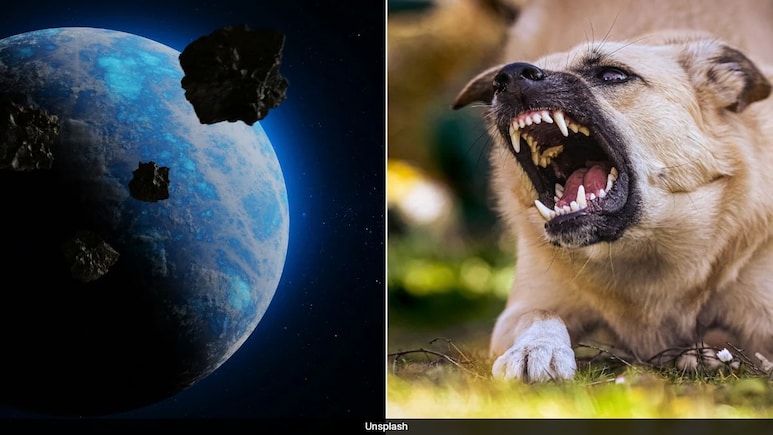
A new scientific study has found that the chances of dying from an asteroid impact during a person's lifetime are higher than dying from rabies. However, both events are still very rare.
The study was led by physicist Dr Carrie Nugent from Olin College of Engineering in the United States. Her team compared the risk of death from an asteroid to several other unusual but preventable causes of death.
To do this, they analysed data about large near-Earth asteroids, especially those more than 140 metres wide. They then estimated how often such asteroids could strike Earth. This was compared with data on deaths from nine other rare events, including lightning strikes, carbon monoxide poisoning, and elephant attacks.
"Chapman and Morrison (1994) previously placed an asteroid impact in context with other causes of death such as murder, fireworks accidents, and botulism. In that work, they considered the chance of death due to an impact alongside the chance of death due to other factors," the researchers write.
"This work addresses a slightly different question; we place the chance of an impact occurring anywhere on Earth relative to the chance of other events of concern happening to an individual. This work is therefore intended to provide context to those who wish to know the probability that a greater-than-140-meter impact will occur, anywhere on Earth, in their lifetime."
The study's goal was to help people understand the risk of asteroid impacts in a real-world context. It also helps policymakers decide how much money and effort should be spent on asteroid defence, like NASA's successful 2022 mission that changed an asteroid's path.
The researchers found that while asteroid deaths are rare, they are still slightly more likely than deaths from rabies. However, more common causes like car crashes remain a much bigger risk. Overall, the chances of dying from any of these rare events are still very low.

